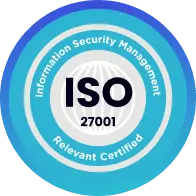It’s truly incredible to think about the impact search engines have had on our lives. In just a couple of decades, they have revolutionized the way we find and access information, giving us the power of near-limitless knowledge right at our fingertips. This has undoubtedly brought about significant changes in various aspects of our lives.

If you want to know more about SEO, just subscribe us and download our free guide! (GUIDE8)
Search engines have become our go-to tools for finding answers, whether it’s trivia, research, or learning something new. They have transformed the way we approach education, as we can now easily explore and delve into any topic we desire. Whether it’s studying for exams, expanding our knowledge base, or pursuing personal interests, search engines have become our invaluable virtual mentors.
In addition to education, search engines have also transformed the way we navigate everyday life. From finding directions and discovering nearby services to exploring new restaurants and seeking recommendations, search engines have become our trusted guides in the digital age. They have made it possible to access reviews, ratings, and insights from other users, helping us make informed decisions quickly and efficiently.
Furthermore, from a business perspective, search engines have opened up new opportunities for entrepreneurs and enterprises. With the right SEO strategies, businesses can now reach a global audience, expand their customer base, and increase their online visibility. Search engines have leveled the playing field, allowing small businesses to compete with larger corporations on the digital frontier.
This incredible technology has truly changed the way we live, work, and interact with the world around us. It has democratized information, empowered individuals, and connected us in ways we could never have imagined. As search engines continue to evolve and improve, we can only anticipate more exciting developments and advancements in the future.
Search engines have changed how we discover information. They’ve changed how we connect with friends and family. And most importantly, they’ve changed how we look for goods and services. No longer are we waiting to stumble on an ad to realise we need something — we’re actively seeking out information online about products and services we want to buy.
These changing consumer behaviors, driven by the increasing reliance on online information, have resulted in a significant growth in the field of Search Engine Optimization (SEO). Businesses have recognized the importance of capitalizing on potential customers who are actively searching for information related to their products or services online. As a result, the demand for SEO professionals has skyrocketed.
In fact, the popularity of SEO can be seen in the professional networking platform LinkedIn, where there are nearly a million individuals who have included SEO in their job title. This demonstrates the widespread recognition of the value and impact that effective SEO strategies can have on a business’s online visibility and success.
With the ever-increasing competition in the digital landscape, businesses are realizing the need to optimize their websites and content to rank higher in search engine results. By employing SEO professionals, companies can leverage their expertise to improve their website’s visibility, attract more organic traffic, and ultimately increase their chances of converting potential customers into loyal ones.
The growth of SEO as a profession highlights the importance of staying up-to-date with the latest trends and best practices in order to remain competitive in the online marketplace.
These individuals believe that by manipulating the system, they can achieve higher rankings and gain more website traffic. However, Google’s constant algorithm updates aim to penalize these unethical practices and prioritize websites that prioritize user experience and provide valuable content.
Incorporating SEO into your UGC strategy is an additive approach that aligns with Google’s guidelines. By optimizing UGC elements such as title tags, headings, page copy, and images, you can improve the relevance of your content to users’ search queries. This, in turn, can increase your website traffic and visibility on search engine result pages.
Platforms like Pinterest have successfully tackled the challenge of optimizing UGC at scale by implementing automated processes. For example, they prompt users to write descriptive text when uploading images, which helps provide high-quality and accessible descriptions. This practice has been adopted by other platforms like Instagram as well.
It is important to note that while some may still resort to tricks and spam to try and manipulate search engine rankings, Google’s focus remains on rewarding businesses that prioritize creating valuable content and earning brand signals. By staying within Google’s guidelines and focusing on developing your brand and putting your customers first, you can achieve long-term success in SEO.

The constant state of change in search has people questioning the importance of SEO at all. Just this week a major news publication questioned if SEO was dead.
Despite the constant changes in search algorithms and the emergence of new technologies, SEO remains an essential strategy for businesses to increase their online visibility and attract organic traffic. While some may question the importance of SEO, it continues to be a fundamental aspect of digital marketing.
The history of SEO is marked by significant events and updates from search engines like Google. These updates have shaped the SEO industry and influenced the strategies used by marketers and website owners. The SlideShare mentioned provides insights into these events, showcasing the evolution of SEO over the past two decades.
Search engines have not only transformed how we find information but also how we connect with others. They have become an integral part of our daily lives, and businesses need to adapt their online presence to meet the changing demands of search engines and users.
These changing consumer behaviors have led to explosive growth in the field of SEO as businesses looked to capitalise on potential customers searching for information related to their product or services online. Today, there are almost a million people on LinkedIn with SEO in their job title.
But as SEO has evolved, a growing division has grown between those people in marketing who try to stay within Google’s guidelines (as best they can), and those who try to beat the algorithm. So the search engines reacted by changing their algorithms — many times. Google wants reward companies who develop brands and put their customers first. They want businesses to create valuable content and earn brand signals (links and social shares). But there are still some people who think that the only way to get to the top of Google is through tricks, schemes, and spam.
Search engines have revolutionized the way we access information and have become an indispensable tool in our daily lives. The ability to search for and find information on virtually any topic has empowered individuals with a wealth of knowledge that was previously unimaginable.
With search engines, we can quickly and effortlessly find answers to our questions, explore new ideas, and stay informed about the latest news and developments. This easy access to information has transformed various aspects of our lives, including education, research, business, and personal communication.
In the realm of education, search engines have become invaluable resources for students and researchers. They provide access to a vast array of academic articles, research papers, and educational materials, enabling individuals to deepen their understanding of various subjects and enhance their learning experience.
From a business perspective, search engines have leveled the playing field, allowing small businesses and startups to compete with larger, more established companies. By implementing effective SEO strategies, businesses can increase their online visibility, attract potential customers, and expand their reach in the digital marketplace.
Furthermore, search engines have facilitated new forms of communication and connection. Social media platforms, for instance, rely heavily on search engines to help users discover and connect with friends, family, and like-minded individuals. This has transformed the way we build and maintain relationships, both personally and professionally.
In conclusion, search engines have had a profound impact on our lives, providing us with a gateway to unlimited knowledge and transforming the way we learn, work, and interact with others. As we continue to rely on search engines for information and discovery, it is crucial to understand and adapt to the evolving landscape of SEO to ensure continued success in the digital age.
Search engines have revolutionized the way we access information and have become an indispensable tool in our daily lives. The ability to search for and find information on virtually any topic has empowered individuals with a wealth of knowledge that was previously unimaginable.
With search engines, we can quickly and effortlessly find answers to our questions, explore new ideas, and stay informed about the latest news and developments. This easy access to information has transformed various aspects of our lives, including education, research, business, and personal communication.
In the realm of education, search engines have become invaluable resources for students and researchers. They provide access to a vast array of academic articles, research papers, and educational materials, enabling individuals to deepen their understanding of various subjects and enhance their learning experience.
From a business perspective, search engines have leveled the playing field, allowing small businesses and startups to compete with larger, more established companies. By implementing effective SEO strategies, businesses can increase their online visibility, attract potential customers, and expand their reach in the digital marketplace.
Furthermore, search engines have facilitated new forms of communication and connection. Social media platforms, for instance, rely heavily on search engines to help users discover and connect with friends, family, and like-minded individuals. This has transformed the way we build and maintain relationships, both personally and professionally.
In conclusion, search engines have had a profound impact on our lives, providing us with a gateway to unlimited knowledge and transforming the way we learn, work, and interact with others. As we continue to rely on search engines for information and discovery, it is crucial to understand and adapt to the evolving landscape of SEO to ensure continued success in the digital age.
Author
-

Alisha is the Editor-in-Chief of Search Engine Journal. Before that, she covered tech for News & Trends, content editing, and social strategy at AdClickAgency. Alisha holds a BA in English and Journalism from Mount Holyoke College and an MBA in Marketing from San Francisco State University. Her work has also appeared in Thrillist, the Boston Herald, and EcoSalon, and she's based in St. Petersburg, Florida.
View all posts







